Since the outbreak of the war in February 2022, the Hungarian Reformed Church Aid (HRCA) has been helping people fleeing the war in Ukraine and those who have remained in Transcarpathia. To mark the one-year anniversary, the HRCA held a press conference on February 24th, highlighting that more than 200,000 people have received assistance of some kind so far.
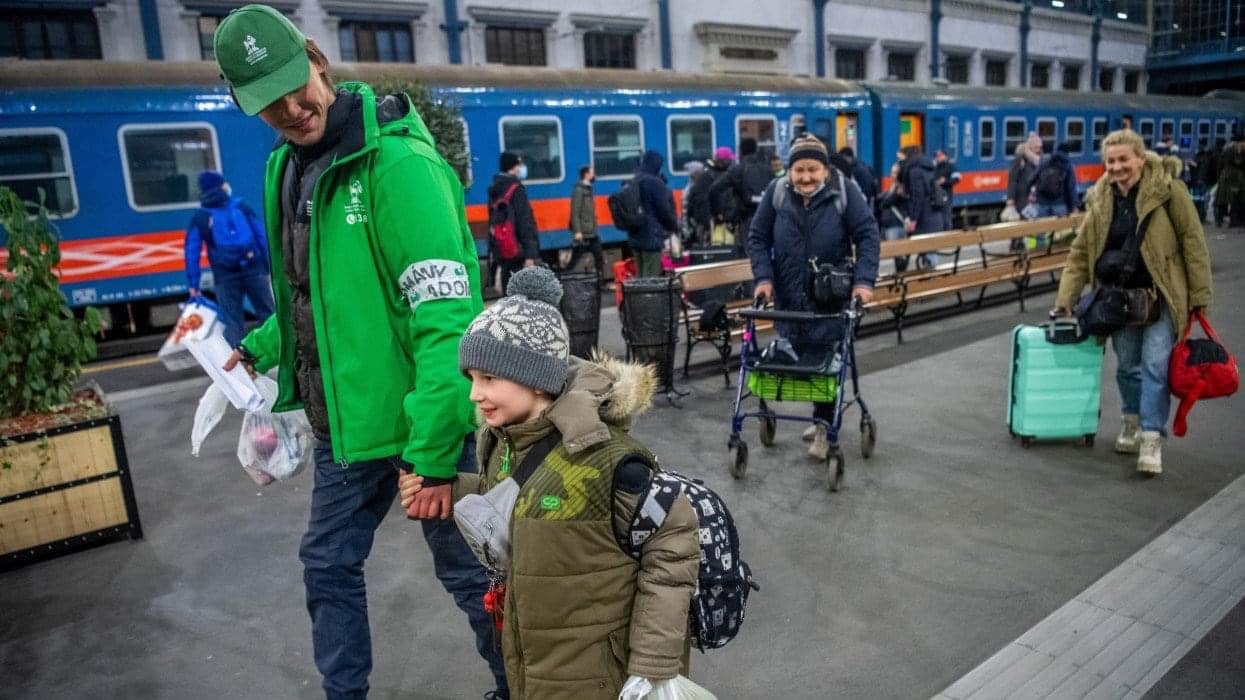
More than 1,000 tons of relief supplies have been donated to support the efforts of the Hungarian Reformed Church Aid (HRCA) as they support refugees of the war in Ukraine, as well as Hungarians in Transcarpathia. These donations have been distributed to people in need, regardless of any political, religious or ethnic affiliation. As Márton Juhász, executive director of the HRCA, remarked, "love is not measured in kilos" but it is a great thing to have been able to do so much.
"A year ago, when we woke up, we were confronted with the fact that what we had thought unthinkable the day before had happened," said Márton Juhász, speaking about the war in our neighborhood. He said the HRCA was among the first domestic charities to respond to the arrival of refugees in Hungary and Transcarpathia. It was also very moving for them to see more than 2,500 people respond to the call for volunteers on the first night.
In the past year, the HRCA has provided care in twenty-nine locations with the help of its 3,400 volunteers. 150 doctors and 1,050 interpreters assisted them.
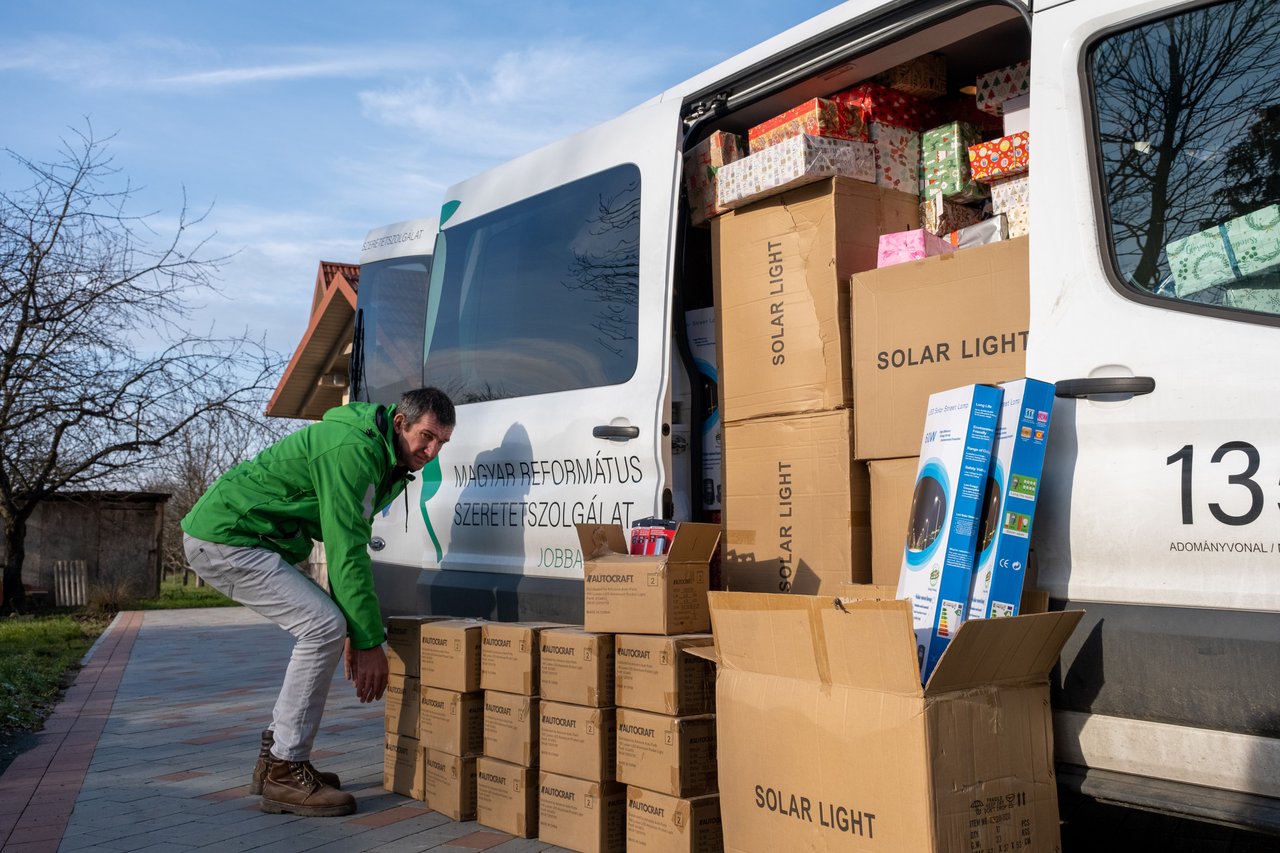
Hundreds of "rounds" of donations were delivered to Transcarpathia, mainly non-perishable food, hygiene products, clothes, cleaning and sanitary products, disinfectants for Covid control, medical equipment, medicines and other medical aid. The HRCA’ strategic partner in this operation is the Transcarpathian Reformed Church, which operates several social and child protection institutions in Transcarpathia.
The executive director expressed his wish that in a year's time there would be peace and that war would not be the reason for such press conferences.
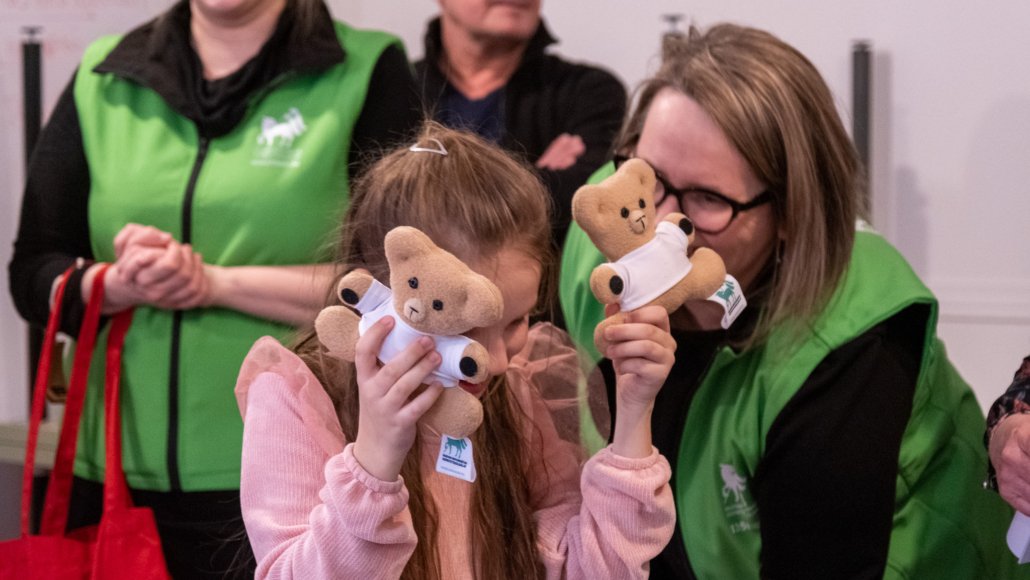
Gábor Nagy, deputy executive director of the HRCA, said that their staff were present at the border, mainly in Záhony, from the very first moment of the war. Their volunteers are still serving there, as well as in the BOK Sports Hall in Budapest, in cooperation with other charitable organizations. They also run a donation point in Budapest, and have integration programs to help refugees find housing, jobs, and schooling for the children. They organize community programs for refugee families, while also trying to help the Ukrainian community toward self-sufficiency. Assistance is also provided for Hungarian language learning, especially for children. More than a thousand refugees participate in integration programs. The HRCA also supports seventy-eight communities that help refugees with two million forints each. The direct cash assistance program on the other hand, which they plan to continue, was mainly funded by foreign aid.
"The ministry in Transcarpathia was already a priority before, but with the start of the war it became even more of a focus," said Pastor Viktoria Katona, another deputy executive director of the HRCA. The organization has supported the overhead costs of 76 congregations in this region, as well as making donations to a number of educational and health institutions. Almost 300 ‘Nyilas Misi’ packages were delivered to students in Transcarpathia, in addition to the purchase of school supplies for 100 children. And last spring, 30 million forints’ worth of seeds were delivered. Katona stressed that HRCA staff were in constant contact with the Reformed Church of Transcarpathia, in order to more readily provide the people of Transcarpathia what they needed at any given time.
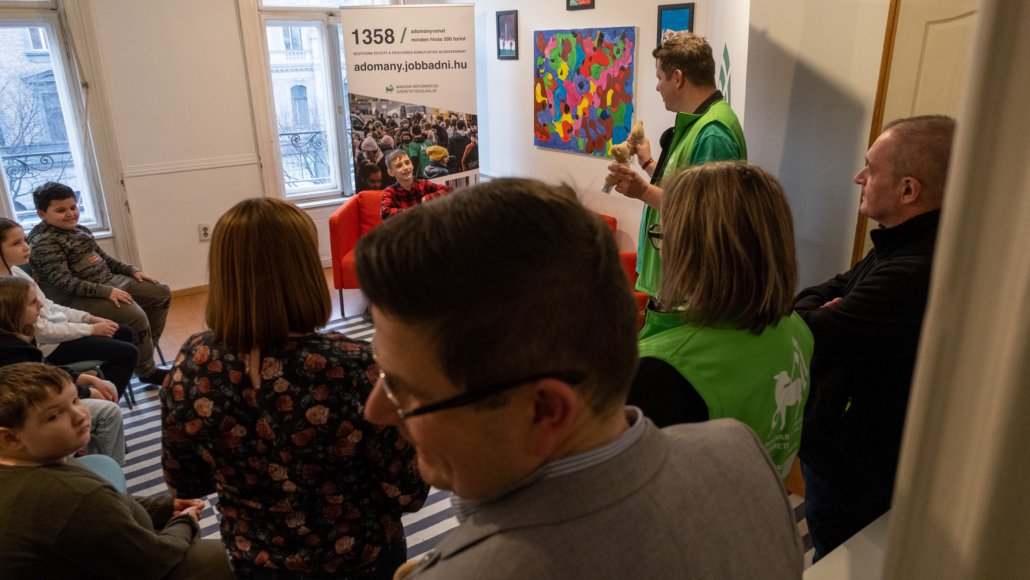
Citing the example of the four Reformed lyceums (or high schools), which could only begin classes in September on the condition that adequate air raid shelters were provided for students and staff, Katona pointed out that the HRCA had supported the construction and equipping of shelters at the four schools as well as the Berehovo nursing home. These shelters enable the lyceum teachers to continue teaching during potential air raids. To offset the disruption of frequent cuts in power, generators have also been provided. In addition to the provision of materials, attention is also being paid to the provision of adequate spiritual support. Contact with the people of Transcarpathia is maintained and prioritized, Ukrainian-language Bibles and children’s activity books have been provided for Ukrainian refugees. The HRCA has also supported churches and institutions in feeding refugees and internally displaced people (IDPs) arriving to Transcarpathia from eastern Ukraine, and have contributed to the running of several soup kitchens. "Our ministry may seem like a drop in the ocean, but the sea is made up of drops, so the sum of all the help we provide can grow into a big one," said Viktória Katona.
Márton Juhász stressed that the HRCA is able to help people suffering because of the war thanks to the donations and support of the Reformed Church in Hungary as well as congregations in Hungary and abroad.
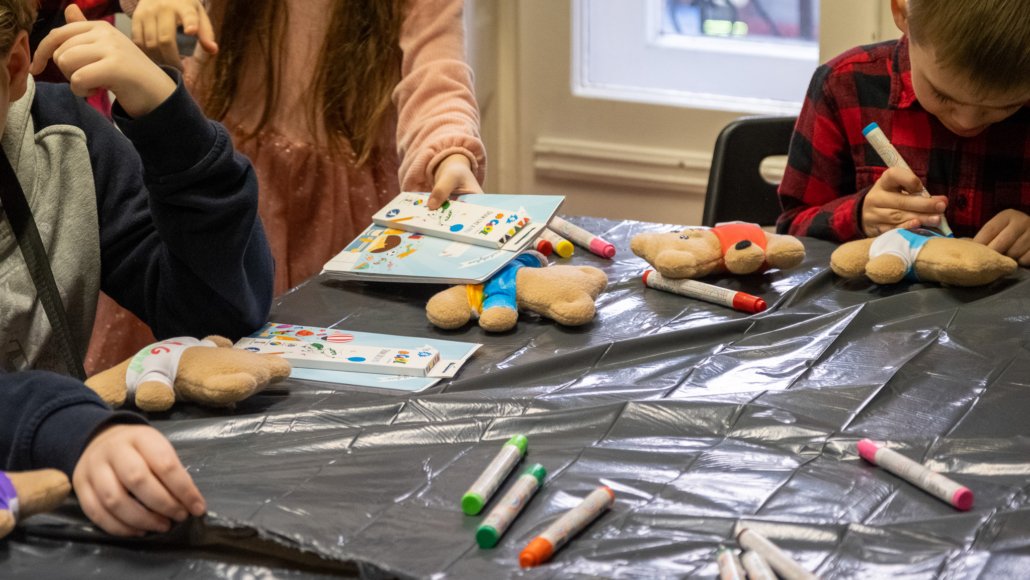
After the press conference, an activity program and story reading was held for Ukrainian refugee children at the HRCA office in Budapest, and the leaders of the Refugee Ministry gave each of the children a Rescue Bear. The children were able to draw and paint customized t-shirts for the stuffed animals. The word "bear" was easy for them to say, as it is the same in both languages, and some of them also said "goodbye" in Hungarian. But the HRCA leaders spoke to them through an interpreter, reminding them that although they were welcome in Hungary, we prayed that they would be able to return home as soon as possible. The children said that they didn’t feel bad in Hungary, but their grandmother, dog and cat were waiting for them and that they were looking forward to returning home.